The film You've Got Mail billed itself as a romantic comedy, but everyone knows it's an economic thriller.
Fox Books vs. The Shop Around the Corner.
Will the big box store destroy a neighborhood bookstore (and the neighborhood itself?) or can the independent shop beat the odds to survive?
When people say there are "too many nonprofits," I think of this movie. How can you say that? It's like saying there are too many independent bookstores. Or too many local coffee shops.
Preposterous.
My lovely wife Ellie pointed out that Kathleen Kelly, the lion of the independent bookstore, visits Starbucks at least twice in the film. The company is not mentioned in passing either, the logo appears in multiple shots, and it's mentioned by name in dialogue! (Here's the famous scene narrated by Tom Hanks.)
What is Kathleen thinking!?
In his remembrance of Nora Ephron, Tom Hanks recalled the cast of Sleepless in Seattle taking frequent trips to a new coffee shop called "Starbucks." Ephron, seeing the trend take shape, bought stock.
When Sleepless in Seattle was filmed in 1993, Starbucks had 272 locations. By 1998, when You've Got Mail was made, Starbucks had 1,886 stores.
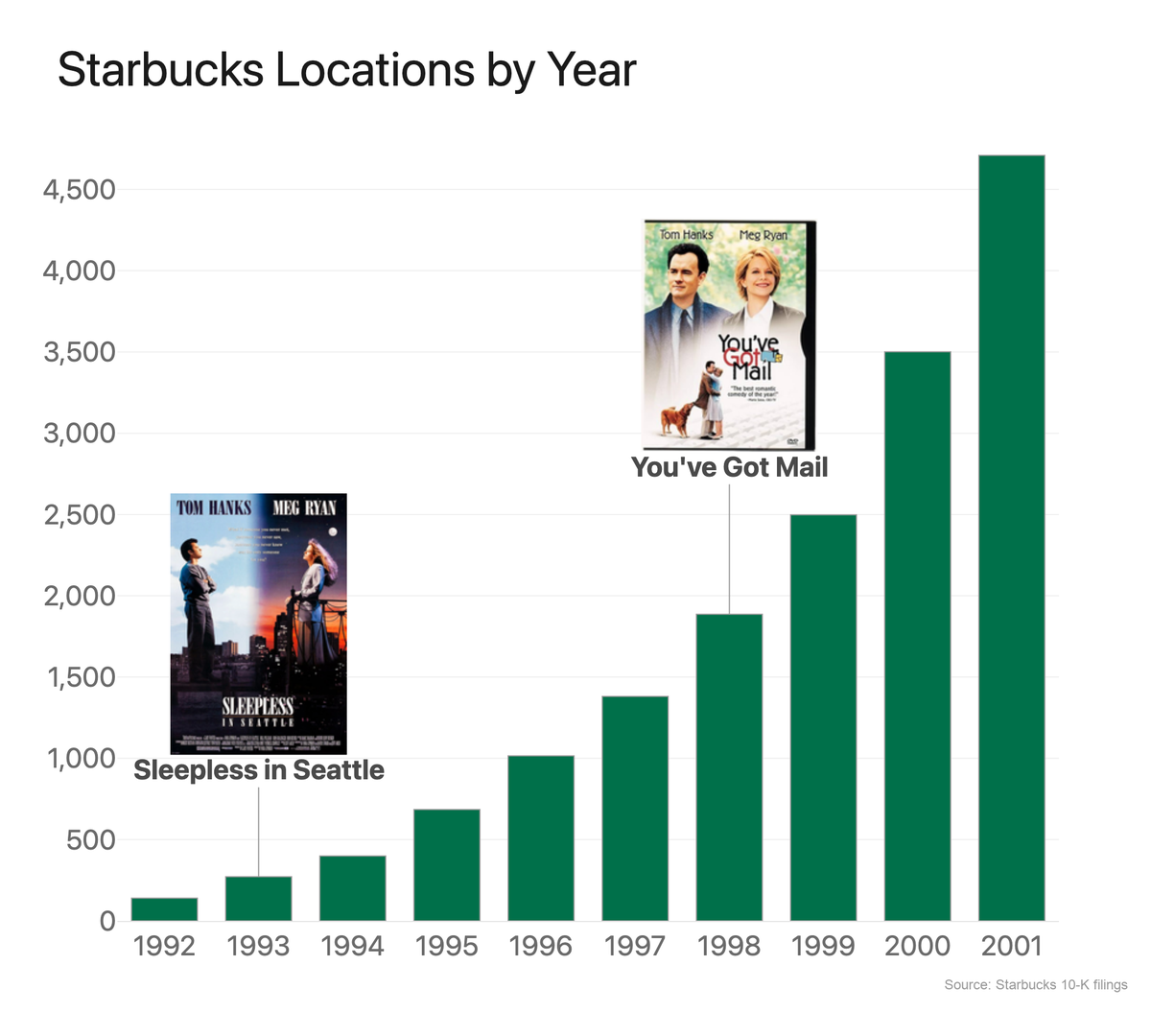
Today, there are more than 40,000.
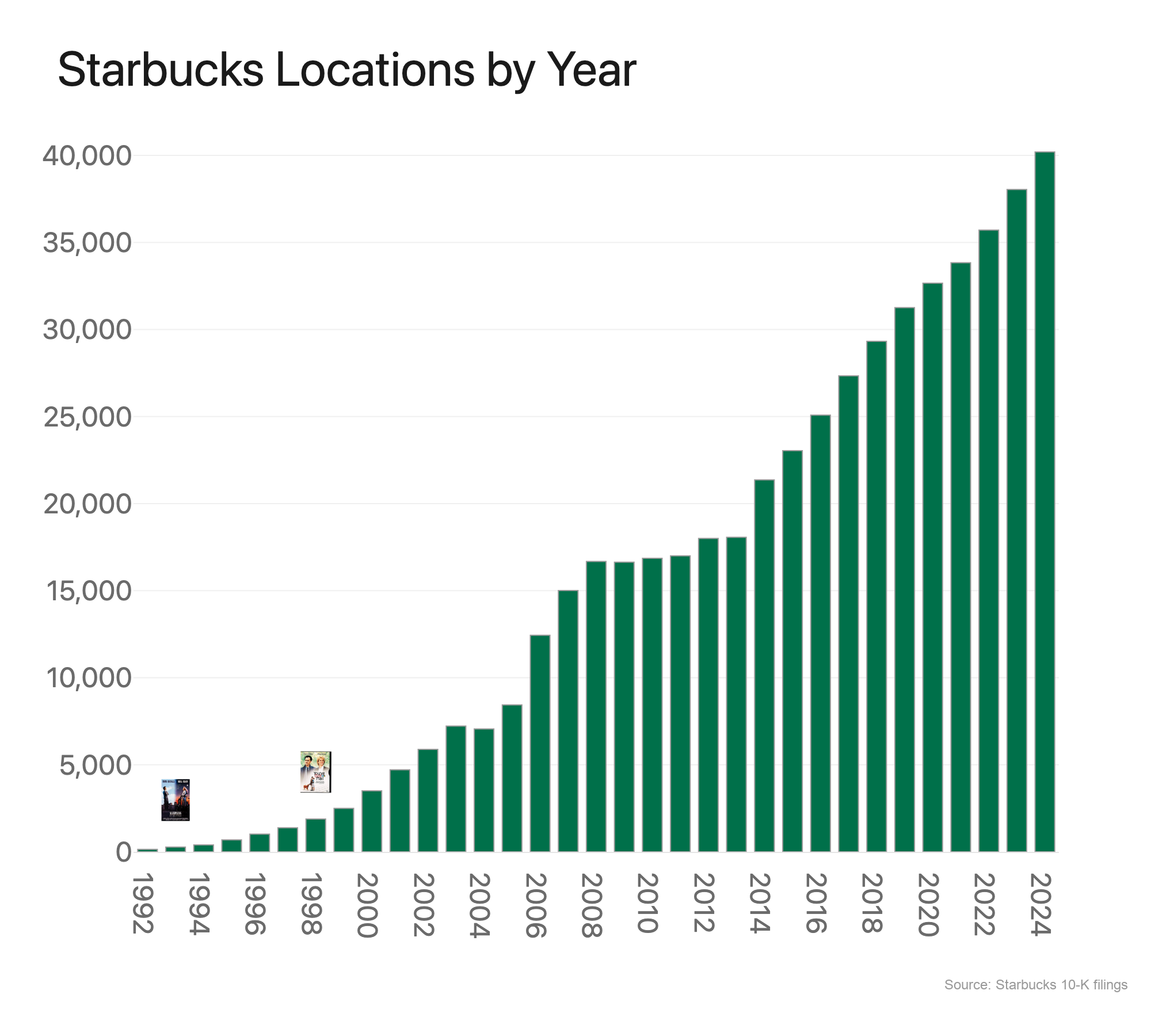
What was Nora telling us?
In a story about the conflict between independent stores and national chains, the choice to include Starbucks couldn't be an accident. Kathleen Kelly appears to see no dissonance between buying a latte at Starbucks and protesting the dangers of Fox Books.
What was Nora Ephron trying to tell us?
An unofficial local history
Big Box booksellers were clearly bad for independent bookstores, but is it possible that Starbucks was actually good for the local coffee scene?
I created a history of coffee shops in my hometown of Wichita (using lots of internet searches) and compared it to Starbucks locations over time.
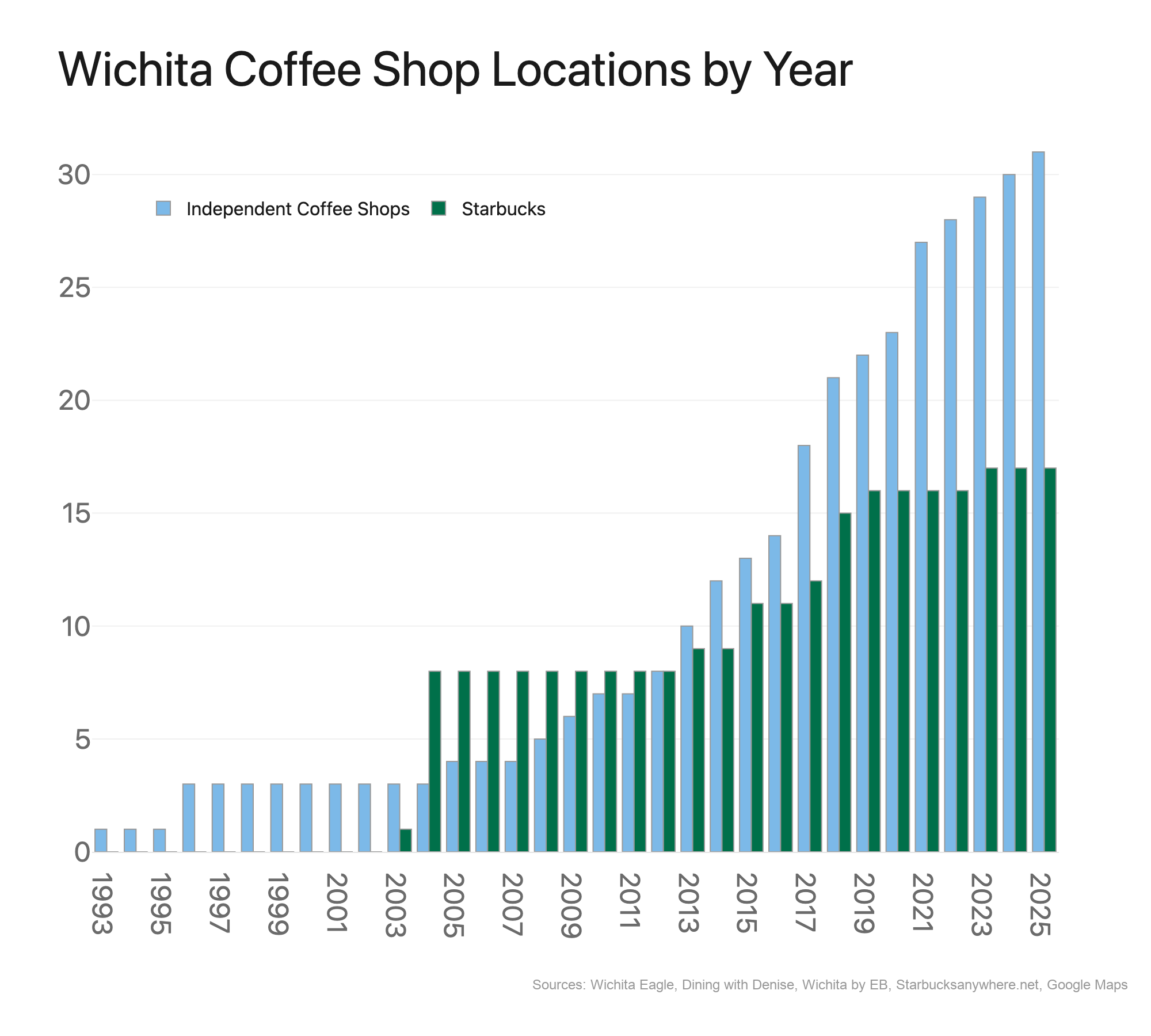
The number of local coffee shops has grown faster than Starbucks locations.
Here's a time lapse. Notice how Starbucks spread out along major arteries but the independent stores cluster around the heart of the city.
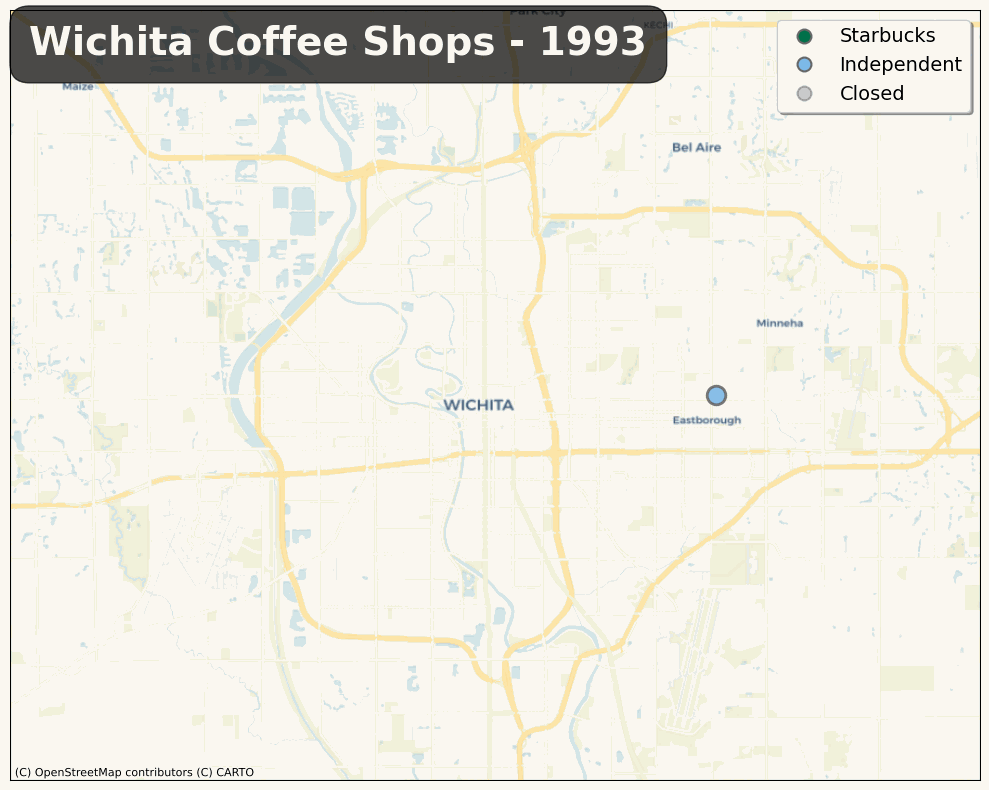
Il Primo arrived on the scene in 1993, a decade before Starbucks would find its way to the middle of the country. A burst of activity by Starbucks in the early 2000s faltered during the housing crisis of 2008. Over the next four years, growth of Starbucks stalled not only in Wichita, but nationwide.
In 2013, as the dust from the financial crisis settled, Reverie Coffee Roasters opened, sparking a new wave of independent stores. Little Lion, Leslie's, Sunflower Coffee, and Adelita's all trace their lineage to Reverie.
As of 2025, based on my admittedly dubious research, Wichita has reached an all-time high for coffee shops.
Starbucks may have started a trend, but local communities are running with it.
What do we mean by "inefficient"?
Many people suggest that consolidating nonprofits would make the sector more efficient.
Local coffee shops are inefficient. They all have expensive espresso machines, real estate, and payroll. Each of them has to do marketing alone, sharing their unique stories and products across an ever-expanding array of social media platforms. That's not efficient.
But what is our goal?
If we want to see more people drink coffee faster, then we need more Starbucks. More drive thrus and automated shots. We need more articles from the Wall Street Journal celebrating the reduction of in-store wait times by two minutes.
But if our goal is to see more third places, we need more independent coffee shops that want to increase your time in the store, not decrease it. We'll need trivia nights, and coffee dates and the best chocolate croissant this side of the Atlantic.
Reducing time in the store reduces serendipity.
Fewer opportunities to bump into an old friend. Or make a new one.
You've Got Mail 2
I want a sequel to You've Got Mail set in 2025. Maybe Kathleen and Joe team up to save Fox Books, which is withering under pressure from an Amazon look-alike. I want to know if Joe and Kathleen continue to drink Starbucks and what they think of AI.
Maybe the moral of the story is not where we buy books, but whether we fall in love with reading.
Starbucks and independent coffee shops both benefited from a powerful trend: Americans learned to love European coffee.
In contrast, fewer and fewer Americans love to read.
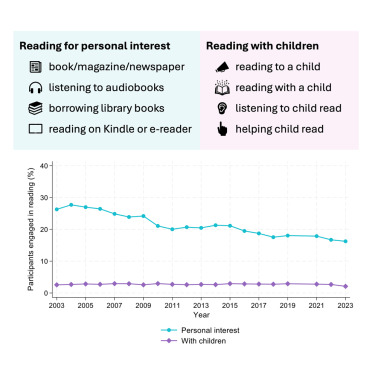
When we examine a community with forty literacy organizations and come to the conclusion that this is too many and that they are too inefficient, let's not forget that Watermark Books, my Shop Around the Corner, outlived Borders. There's a good chance they are doing more to help people love reading than Amazon ever will.
Most, if not all, of the best things in this world are inefficient.
I don't see why the nonprofit sector should be any different.
I'll go to the mattresses with anyone who disagrees.
Until next week,
Ted
PS shout out to the folks at Larcher's where I wrote most of this post and big thanks to Andrew Gough (The Godfather of Wichita coffee) who filled in some gaps to my local history.






